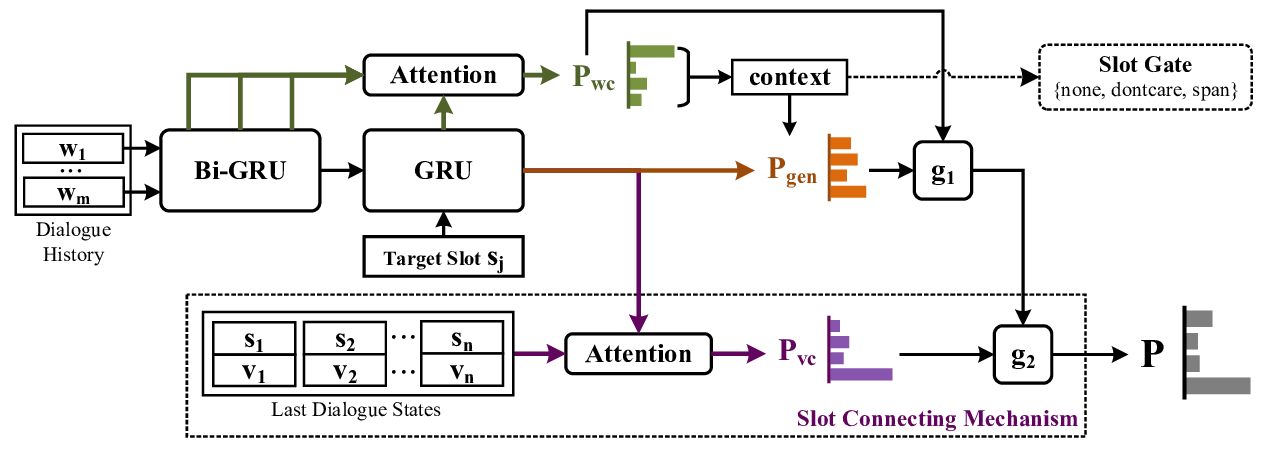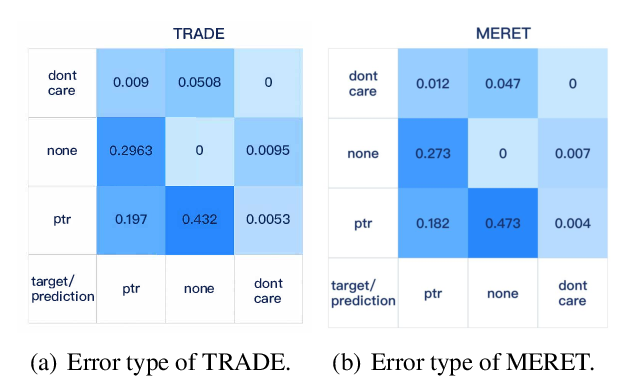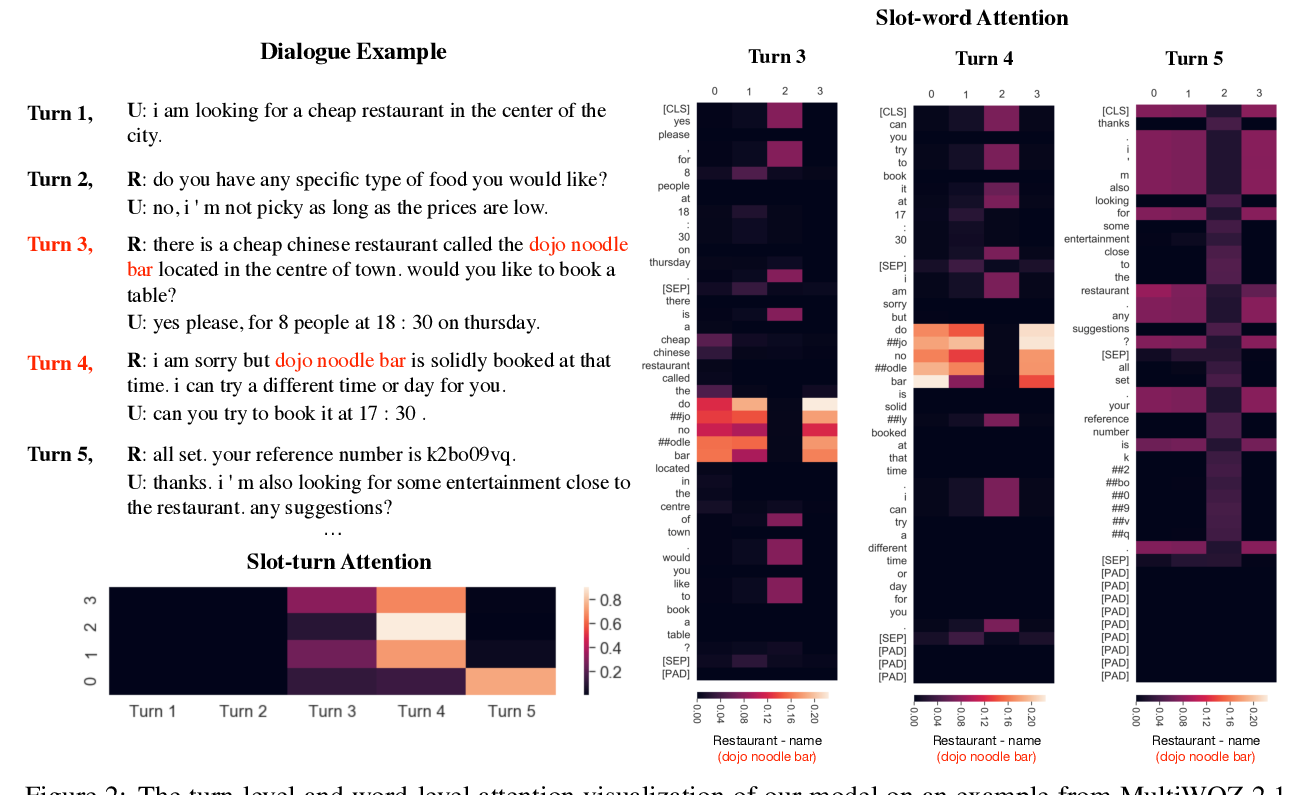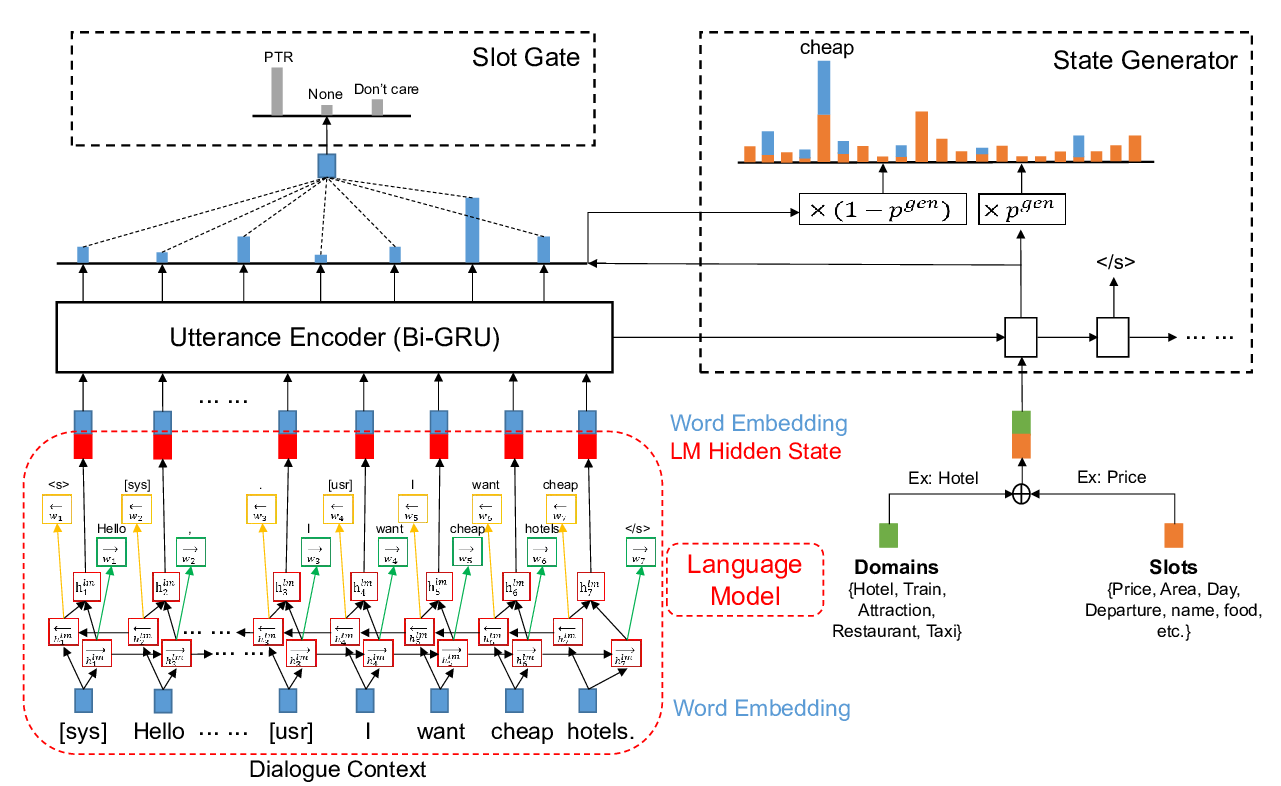Efficient Dialogue State Tracking by Selectively Overwriting Memory
Sungdong Kim, Sohee Yang, Gyuwan Kim, Sang-Woo Lee
Dialogue and Interactive Systems Long Paper
Session 1B: Jul 6
(06:00-07:00 GMT)

Session 4A: Jul 6
(17:00-18:00 GMT)

Abstract:
Recent works in dialogue state tracking (DST) focus on an open vocabulary-based setting to resolve scalability and generalization issues of the predefined ontology-based approaches. However, they are inefficient in that they predict the dialogue state at every turn from scratch. Here, we consider dialogue state as an explicit fixed-sized memory and propose a selectively overwriting mechanism for more efficient DST. This mechanism consists of two steps: (1) predicting state operation on each of the memory slots, and (2) overwriting the memory with new values, of which only a few are generated according to the predicted state operations. Our method decomposes DST into two sub-tasks and guides the decoder to focus only on one of the tasks, thus reducing the burden of the decoder. This enhances the effectiveness of training and DST performance. Our SOM-DST (Selectively Overwriting Memory for Dialogue State Tracking) model achieves state-of-the-art joint goal accuracy with 51.72% in MultiWOZ 2.0 and 53.01% in MultiWOZ 2.1 in an open vocabulary-based DST setting. In addition, we analyze the accuracy gaps between the current and the ground truth-given situations and suggest that it is a promising direction to improve state operation prediction to boost the DST performance.
You can open the
pre-recorded video
in a separate window.
NOTE: The SlidesLive video may display a random order of the authors.
The correct author list is shown at the top of this webpage.
Similar Papers
Dialogue State Tracking with Explicit Slot Connection Modeling
Yawen Ouyang, Moxin Chen, Xinyu Dai, Yinggong Zhao, Shujian Huang, Jiajun Chen,

Meta-Reinforced Multi-Domain State Generator for Dialogue Systems
Yi Huang, Junlan Feng, Min Hu, Xiaoting Wu, Xiaoyu Du, Shuo Ma,

A Contextual Hierarchical Attention Network with Adaptive Objective for Dialogue State Tracking
Yong Shan, Zekang Li, Jinchao Zhang, Fandong Meng, Yang Feng, Cheng Niu, Jie Zhou,

